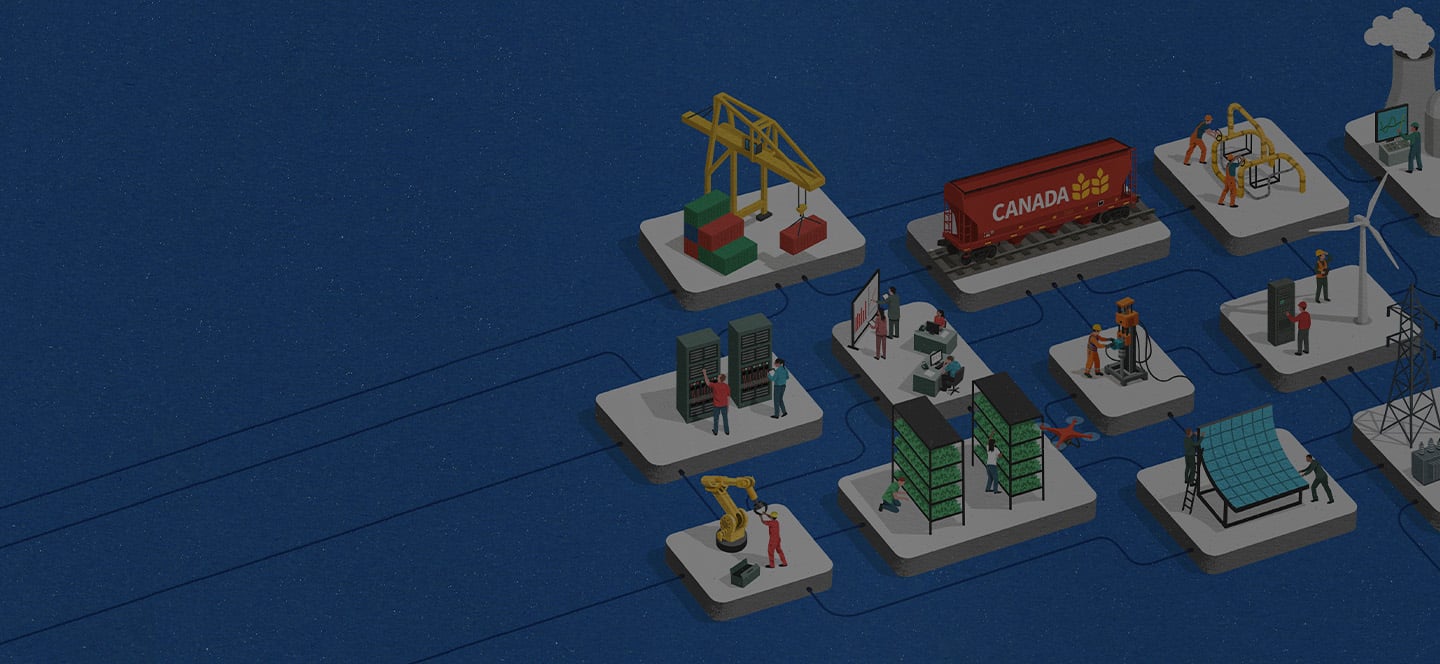The Canadian aviation industry is expanding efforts to tackle climate change and reduce greenhouse gas (GHG) emissions.
While the aviation industry is responsible for only 3 percent of Canada’s overall annual GHG emissions, it is one of the few remaining sectors where emissions have continued to increase over the past decade.
Canadian air operators were responsible for releasing approximately 22 megatons (Mt) of carbon dioxide equivalent (CO2e) into the atmosphere in 2019, from both domestic and international flights, this quantity represents a 75 percent increase in the industry's GHG emissions between 2005 and 2019.
In response, on September 27, 2022, the Government of Canada released Canada's Aviation Climate Action Plan (2022-2030), which aims to have 10 percent of all aviation fuel used come from sustainable sources by 2030. Achieving this goal will require scaling-up the production and use of sustainable aviation fuel (SAF), a jet fuel alternative that reduces CO2 emissions by up to 80 percent compared to conventional jet fuel.
SAF: A Low-Carbon, Drop-In Solution
SAF is a lower-carbon jet fuel derived from non-petroleum sources—such as forestry and agricultural waste—used cooking oil and carbon captured from the air. Once refined, SAFs are chemically identical to conventional jet fuel. SAFs are thus a drop-in solution that can replace fossil jet fuels without the need to modify existing aircraft engines or infrastructure. Replacing conventional jet fuel with SAF will help to significantly reduce the aviation industry's carbon footprint.
Industry Developments
Today, more than 450,000 commercial flights globally have used SAF, and this number is only expected to grow. In 2019 Canada's domestic aviation sector alone consumed more than 8 billion litres of jet fuel. The Canadian Energy Regulator (CER) predicts that by 2030 jet fuel consumption in Canada will increase to approximately 10.6 billion litres, with 10 percent of that amount coming from SAF—which means over 1 billion litres of SAF is expected to be needed in only 7 years' time.
Canadian airlines have already begun pivoting towards increased SAF use. Air Canada is investing $50 million in SAFs, and WestJet announced a three-month commitment to operating all flights from San Francisco to Calgary with SAF. In addition, they, along with most other airlines operating in Canada, are founding members of the Canadian Council for Sustainable Aviation Fuels (C-SAF) which is mobilizing stakeholders such as airlines, airports, refiners, OEMs, technology and feedstock providers and academia to work together with government to establish a roadmap and smart policy to create a SAF market in Canada.
Despite these gains, globally there is less than 1 percent of jet fuel supply is SAF with effectively none of that in Canada, meaning production will have to increase exponentially to meet growing demand from airlines. In Canada, the construction of several biofuel facilities have been announced recently that, if fully allocated to SAF production, would have the capacity to produce up to 600 million litres of SAF by 2030 but that number still falls far short of projected domestic needs. Furthermore, some of the announced production facilities may never make it to completion and even if built, may find that there are insufficient incentives to allocate meaningful production capacity to SAF instead of to bio-diesel products. The need for new or converted production facilities with the assistance of incentives that can fairly compete with incentives available to foreign producers is large and growing.
Federal Funding and Support in Canada
There are several available funding measures to support the shift towards SAF and drive emission reductions in the aviation sector. Federal carbon pricing, enabled under the Greenhouse Gas Pollution Pricing Act, applies to emissions from intra-provincial aviation under the fuel charge. Presently, emissions from inter-provincial flights, which account for the majority of domestic air travel, are not covered by carbon pricing. However, the federal government has acknowledged it needs to do more work on inter-provincial aviation emissions.
Additionally, on August 9 2022, the Government of Canada released Draft Regulations Amending the Fuel Charge Regulations, which provides relief from the fuel charge for the portion of aviation fuel that is bio-aviation fuel (i.e., SAF derived entirely from biological matter). This new measure proportionately reduces the fuel charge payable.
Further, beginning in 2023, the Clean Fuel Regulations (CFR) will create a national credit market for clean fuels in Canada. Under the CFR, the production or import of eligible and registered SAF and other low-carbon fuels will create credits for producers, which in turn will increase financial incentives for SAF production and adoption in Canada. In Canada’s Aviation Climate Action Plan, the federal government will collaborate with C-SAF and others to develop a Canadian roadmap for SAF and explore how federal measures can be leveraged to create a policy environment that enables and accelerates SAF uptake in Canada.
Finally, The Government of Canada has committed $227 million over 8 years to support the purchase of more than 300 million litres of low-carbon-intensity marine and aviation fuels, including SAF, for its federal fleet as part of the Low-carbon Fuel Procurement Program.
What's Next
As the Canadian aviation industry pushes to decarbonize, SAF represents a leading solution for replacing conventional jet fuel and substantially lowering carbon emissions. As a result, the demand for SAF is predicted to continue to grow exponentially in Canada in the near future. With much of that future high volume demand for SAF organized under the C-SAF banner, the path to matching demand with new domestic production as a commercial matter is clear if Canada's public policy economic incentives are competitive with our closest neighbours
If you have any questions about SAF or other sustainable projects, please contact the authors of this blog or the Bennett Jones Aviation group.






















